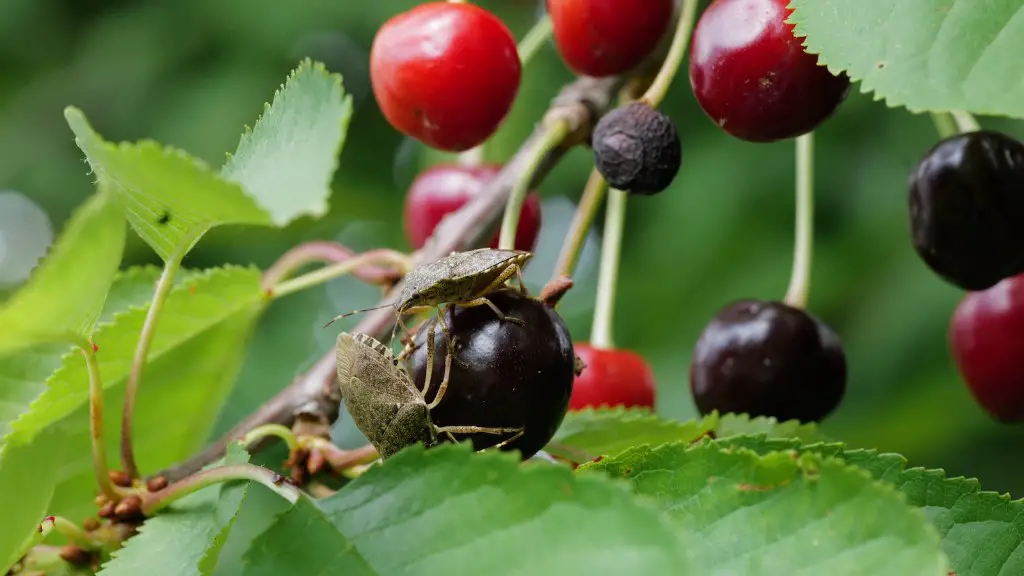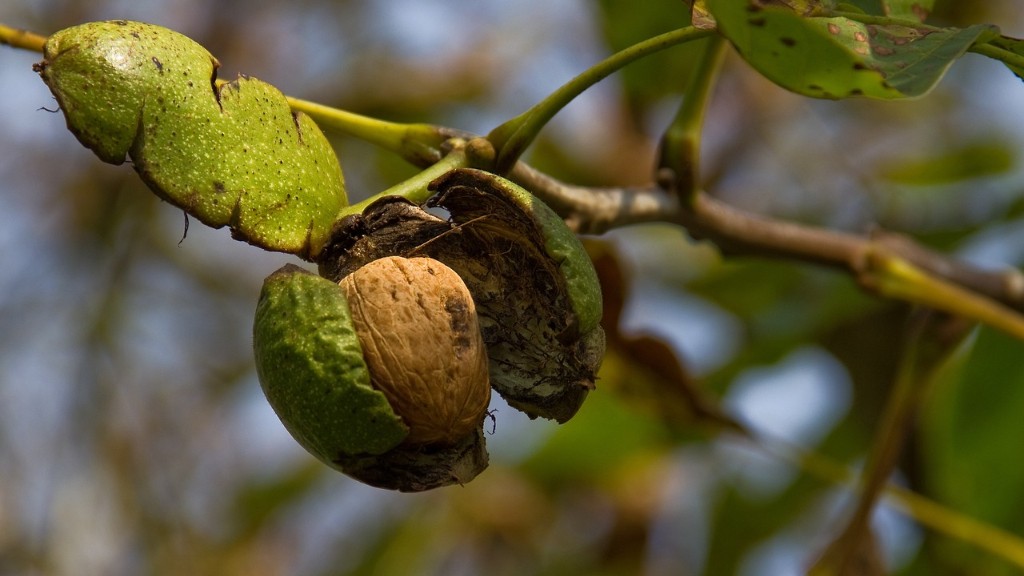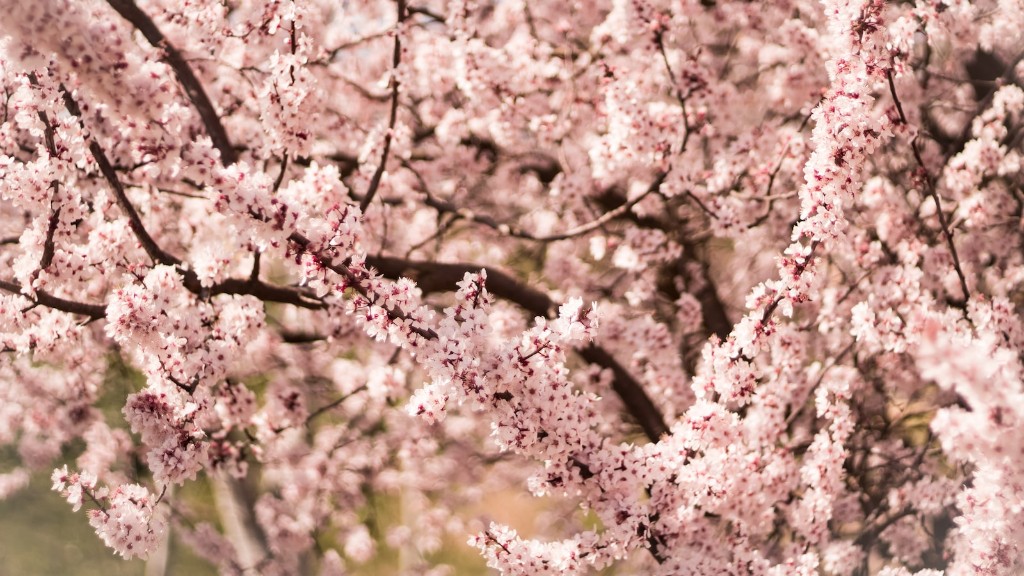What is causing birds to eat cherries off trees?
Birds eating cherries off trees can be a major problem for cherry orchards, vineyards, and backyard gardens alike. While their motive is usually to find food and nutrition, their curiosity and spontaneity can lead them to wreak havoc on your cherry crop. The pesticides and bird nets used to try and discourage them are often unsuccessful, leaving many gardeners and orchard owners wondering how to keep birds from eating cherries off trees.
The most common birds that may be eating your cherries are robins, blue jays, starlings, cedar waxwings, and blackbirds. All these birds feed on cherries and other fruits and can cause extensive damage to a crop. The timing of the cherries’ ripening and the arrival of these birds for their seasonal migrations can also be a coincidence that affects the quality of a crop.
Prevention and Control Strategies
The best way to control the birds from eating cherries off your tree is to start as early as possible with preventive measures. If you are growing a cherry tree in your backyard, cover it with repellent balloons and tapes, as birds are naturally more scared of rapidly changing objects. You can also add some rubber snakes, owls, or other predators near your cherry tree to deter them. If possible, you can also opt for netting or mesh covers to protect the cherries from birds.
It’s important to regularly cut dead branches, pick up fallen fruit, and clean up any fruit that may have fallen off the tree. These fallen fruit pieces can attract birds, so making sure to keep the surroundings of your cherry tree clean is an important step. You should also consider pruning your tree, as it can help reduce the run-off of water during heavy rains. Pruning your tree during the off-season can also halt the spread of pests and diseases.
Organic Methods of Controlling Birds
Organic methods of controlling birds are a great way to keep birds from eating cherries off your trees without resorting to chemicals or expensive bird repellents. Planting certain plants and herbs around the tree can act as natural bird repellents. Marigolds, chilli plants, garlic, and other pungent plants or herbs can help repel the birds.
Automatic sprinkler systems that periodically shoot a mist of water in the surrounding areas of the tree can also be helpful in keeping away birds. Installing a radio or a speaker to play loud sounds such as loud human voices or specific bird predator noises can also be effective in scaring away birds. However, these methods may need to be regularly changed in order to be effective, as birds can quickly become accustomed to them.
Inaccessibility of Cherries to Birds
Making the cherries inaccessible to birds can be a great way to avoid their damage. Installing a windshield or a canopy near the tree can help block birds from flying near the tree and therefore, from eating the cherries. Placing bright, eye-catching tape around the tree can also act as a physical block, as they will appear as a wall that birds can’t fly through.
Southern Living recommends using simple, brightly colored plastic grocery bags or streamers to keep birds away, as they are too large to fit through the branches and can act as a visual barrier.
Creating a temporary fence is another way to keep birds away, as it would prevent them from taking off with the cherries. The fence should be constructed out of netting or limited access barriers, such as tree guards or cauls. Setting up a scarecrow can also be a great way to keep birds away.
Eliminating the Food Source
Eliminating the food source by planting fewer trees or pruning the existing ones is a possible way to keep birds from eating cherries off your trees. Planting trees that have a slower ripening time or planting different types of cherry trees can be a possible way to limit the damage caused by birds. Additionally, planting other trees or shrubs in the area surrounding your tree can help deter birds, as they will find other food sources in the vicinity that aren’t related to your fruit-bearing tree.
Planting native, easy-to-grow fruit trees, such as dogwood, juniper, hawthorn, holly, and American mountain-ash can also be a possible way to keep the birds from eating cherries off the tree. While these trees don’t produce fruit, they can act as cover and provide food for birds that aren’t fond of eating your cherries.
Harvesting and Preservation Tactics
Harvesting and preservation tactics can be a great way to prevent birds from eating cherries off your trees. Harvesting the cherries as soon as they are ripe can not only guard against their damage but can also provide you with a great supply of freshly picked cherry fruit. A possible way to preserve your cherries is to pick them a little earlier and place them in a cooler or refrigerator.
Cider vinegar can also be used to protect the cherries from birds. Adding two teaspoons of vinegar to every two quarts of water and spraying it onto the cherries can help preserve them and prevent birds from eating them. For orchard owners, considering early harvesting is a possible way to forecast ripening timing and protect the cherries from birds by harvesting them earlier than they would normally.
Limiting Human Activities Nearby
Limiting the amount of human activity near the cherry tree is another way to keep birds from eating the fruit. Human activities, such as loud music, weed-whacking, and lawn mowing can scare away birds, especially ones that are used to staying in one spot for a long time.
Limiting air traffic near your cherry tree is also important, as birds need a clear path to take off. It’s always best to create a barrier of higher branches or foliage that can act as a shield and stop birds from flying near your tree. Keeping the area around the tree clean and safe can give birds one less reason to visit.
Mixed Repellents
Using mixed repellents can also help keep birds away from your cherry tree. Adding a combination of physical and chemical repellents such as taste-based bird repellents and others can be an effective solution to bird damage in cherry orchards and vineyards. Another possible way is to mix spicy and pungent repellents such as red pepper cayenne. Adding a combination of animal repellents such as owls, snakes, or hawks can also be helpful in deterring birds from the tree.
Wildlife-Friendly Alternatives
Being mindful of the birds’ diets and habitat is an essential step to having successful cherry orchards. Installing bird feeders in the surrounding areas of the tree can be helpful in enticing birds away from the cherries. Planting a variety of trees in the area can also be a possible way to keep the birds away from your fruit-bearing variety.
Bird baths in close proximity to the tree can also attract birds that may be flying in from nearby areas. Furthermore, providing safe sources of water can also help keep them from visiting your cherry tree. These wildlife-friendly alternatives help create healthy habitats for birds and provide them with enough sources of nutrition to stay away from your cherry crop.
Discouraging Birds from Coming Near the Cherry Trees
Physical barricades such as tree wraps, flickering lights, and decoy falcons or hawks can be effective in preventing birds from coming near the cherry tree. If possible, it is also helpful to install wind machines that create a giant fan-like effect and drive away birds. Visual deterrents such as aluminum-coated fabric, brightly colored balloons and streamers, and hanging pieces of aluminum can also be helpful in keeping birds away.
Providing food sources nearby, such as barley or millet, can also be helpful as they are much less attractive to birds than cherries. Adopting these conservation techniques can help promote a bird-friendly environment and give birds reasons to stay away from your cherry trees.


